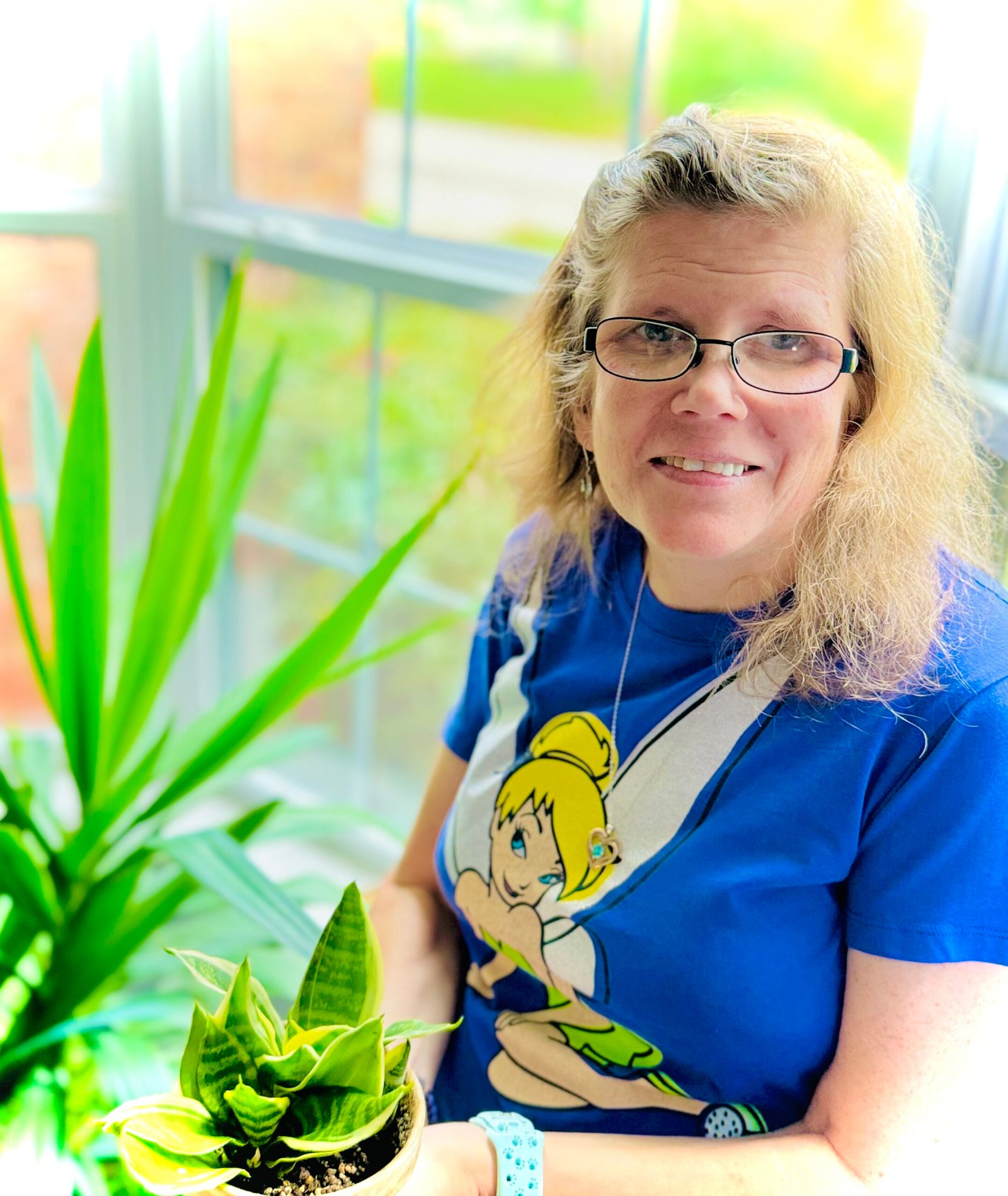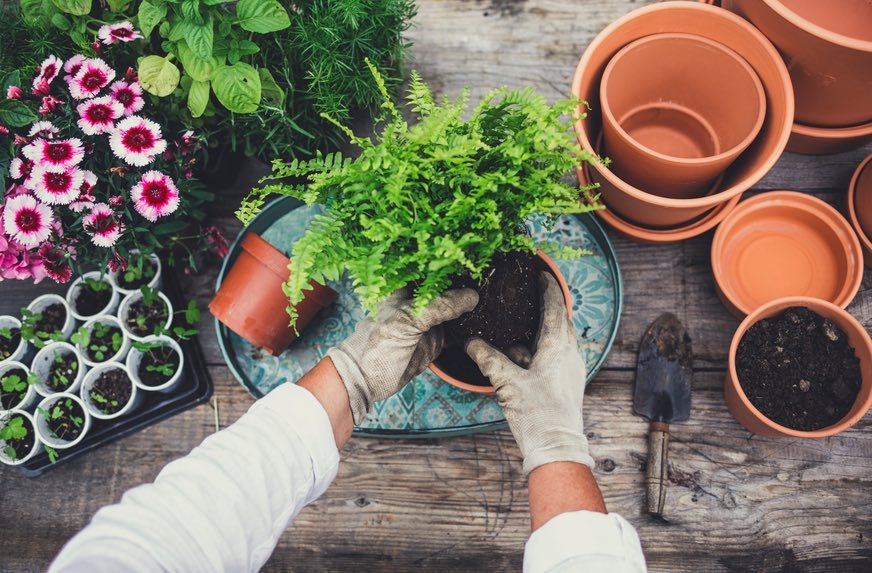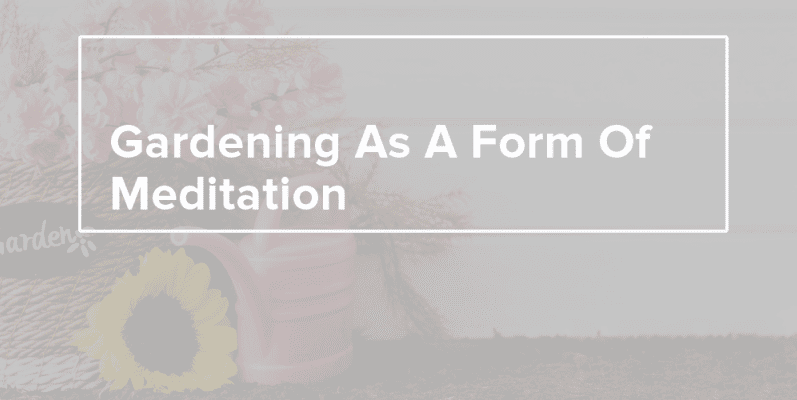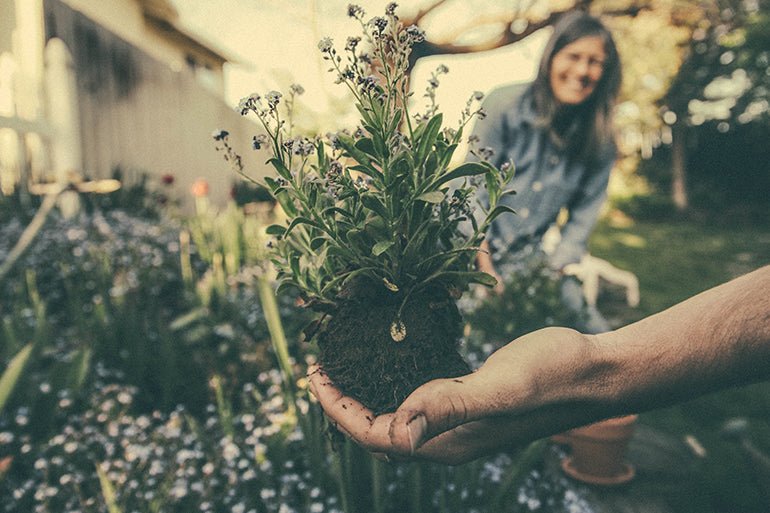Gardening has a unique way of soothing your mind and soul, transforming everyday activities into a meditative practice. As you dig your hands into the soil, plant seeds, and nurture your garden, you become rooted in the present moment, leaving behind the stresses of daily life. The rhythmic tasks, the connection to nature, and the sheer joy of watching life grow all contribute to a sense of peace and fulfillment. Each moment spent among your plants becomes a serene escape, allowing you to reconnect with yourself and find tranquility in the simplest of actions. Discover why gardening is a profoundly enriching form of meditation. Have you ever found yourself lost in the simple pleasure of digging your hands into the soil, planting seeds, and watching your garden grow? If you have, you might already know what many others are discovering: gardening can be an excellent form of meditation. In today’s fast-paced world, finding moments of tranquility can feel like a rare luxury. But there within the dirt, flowers, and greenery lies a gateway to peace.
What Makes Gardening Similar to Meditation?
The Mindfulness of the Process
One of the core similarities between gardening and traditional meditation is the opportunity it offers for mindfulness. When you garden, you become immersed in the activity. You notice the texture of the soil, the color of the leaves, and the fragrance of the flowers. Each of these sensory experiences brings you to the present moment, making it easier to let go of your worries and stresses.
Focus on the Here and Now
Much like meditation, gardening requires your full attention. Whether you’re weeding, planting, or simply watering, each task pulls you into the here and now. The focus required in gardening can be both engaging and soothing, providing a break from the incessant buzz of daily life.
Repetitive Actions and Rhythms
Meditation often involves repetitive actions or chants to help center your mind. Gardening has similar rhythms: the cyclical actions of planting, watering, and pruning. These repetitive movements can provide a tranquil rhythm that calms your mind and deepens your focus, much like the repetitive chants in meditation.
Physical Benefits Complementing Mental Peace
Exercise and Endorphins
Gardening is not just good for your mind; it’s also a great way to get some physical exercise. Bending, digging, lifting, and stretching—all these actions work various muscle groups in your body. This physical activity promotes the release of endorphins, the body’s natural mood lifters, which can enhance your mental well-being.
| Garden Activity | Muscles Worked | Benefits |
|---|---|---|
| Digging | Core, legs, arms | Strengthens muscles, cardiovascular workout |
| Pruning | Arms, shoulders | Enhances upper body strength |
| Planting | Legs, back, hands | Improves flexibility and dexterity |
| Raking | Arms, back, core | Cardiovascular benefits |
Fresh Air and Sunshine
Spending time outdoors exposes you to fresh air and natural light. Sunshine helps your body produce vitamin D, essential for maintaining healthy bones and a good immune system. The benefits of soaking up sunlight go beyond physical health; natural light has been shown to improve your mood and fight off feelings of depression.
Connection to the Elements
By immersing yourself in the natural elements—earth, water, air, and sometimes even fire (think sunlight)—you create a connection that can be grounding and stabilizing. This elemental interface is something that aligns closely with many forms of meditation and spiritual practice.
Emotional and Psychological Benefits
A Sense of Accomplishment
There’s an undeniable sense of accomplishment that comes from nurturing a plant from seed to full bloom. This sense of achievement can foster self-esteem and a sense of purpose. In a world where success often feels intangible, gardening offers visible, tangible results.
Emotional Catharsis
The act of gardening can also serve as an emotional release. Whether you’re working through grief or simply having a tough day, digging, planting, and tending to your garden can provide a healthy outlet for your emotions. Many people find that the act of nurturing plants can be emotionally soothing and rejuvenating.
Community and Connection
Engaging in gardening can also be a social activity, offering opportunities to meet and connect with like-minded individuals. Be it community gardens or local gardening clubs, these social interactions can provide a valuable sense of belonging and community.
Spiritual Aspects of Gardening
Harmony with Nature
One of the more intangible yet profound benefits of gardening is the sense of harmony it fosters with nature. When you garden, you’re not just working with soil and plants, but with the cycles of the earth. You become more attuned to the seasons, the weather, and the natural lifecycle of living things. This connection can offer a spiritual uplift, aligning you more closely with the world around you.
Reflective Practices
Many gardeners find that the act of gardening provides ample time for reflection. Whether you’re contemplating life decisions or simply musing on the beauty of a blossoming flower, gardening can become a spiritual practice in itself, helping you to explore deeper thoughts and feelings.
Symbols and Metaphors
Gardening is rich in symbols and metaphors that can mirror your own life. The cyclical nature of planting and harvesting, the patience required for plants to grow, and the resilience needed to overcome setbacks—all these can offer valuable life lessons and spiritual insights.
Practical Tips for Meditative Gardening
Start Small
If you’re new to gardening, start with a small, manageable plot. This reduces the risk of feeling overwhelmed and allows you to focus your attention on a smaller area.
Use Organic Methods
Opt for organic methods of gardening to keep the process as natural as possible. Avoiding chemical fertilizers and pesticides not only benefits the environment but also makes the gardening experience purer and more pleasant.
Mindful Gardening Tools
Choose your tools carefully. Ergonomic tools can prevent strain and make the gardening process more enjoyable. Pay attention to the feel and balance of your tools to enhance the sense of touch and connection during your gardening sessions.
Create a Sacred Space
Consider designating a specific area of your garden as a “sacred space” for meditative gardening. It doesn’t have to be large or elaborate; even a small, quiet corner can serve as your personal sanctuary.
Final Thoughts
Gardening is much more than a pastime. It’s a practice that can enrich your life in numerous ways. Whether you’re pulling weeds or planting flowers, each action in the garden can help you connect more deeply with yourself and the world around you. So the next time you find yourself in need of a break from the hustle and bustle, consider stepping into your garden. You might just find the peace and meditation you’ve been seeking.

My name is Michelle Warren, and I’m the founder of Peaceful Gardening. As a 10-year breast cancer survivor, I’ve discovered the profound therapeutic power of gardening. This journey has not only helped me recover but has also become my passion and a source of ongoing peace and joy.
Peaceful Gardening was born from my desire to share the healing benefits of gardening with others. Whether you’re facing health challenges, dealing with stress, or simply looking to connect more deeply with nature, this space is for you.
Over the past decade, I’ve cultivated not just plants, but a deep understanding of how gardening can positively impact mental health. I’ve worked with local community gardens, led workshops on mindful gardening practices, and collaborated with mental health professionals to develop gardening-based stress reduction programs.
Peaceful Gardening was born from my desire to share the healing benefits of gardening with others. Whether you’re facing health challenges, dealing with stress, or simply looking to connect more deeply with nature, this space is for you.
Here, you’ll find evidence-based advice on using gardening as a tool for mindfulness, stress relief, and emotional healing. I share personal stories, practical tips, and scientifically-backed information on how to create your own therapeutic garden space, no matter the size of your yard or balcony.
My mission is to help you discover the joy, peace, and healing that comes from nurturing plants and connecting with nature. Join me in exploring how the simple act of tending to a garden can transform your mental and emotional wellbeing.
Welcome to Peaceful Gardening – let’s grow together towards better mental health!”





